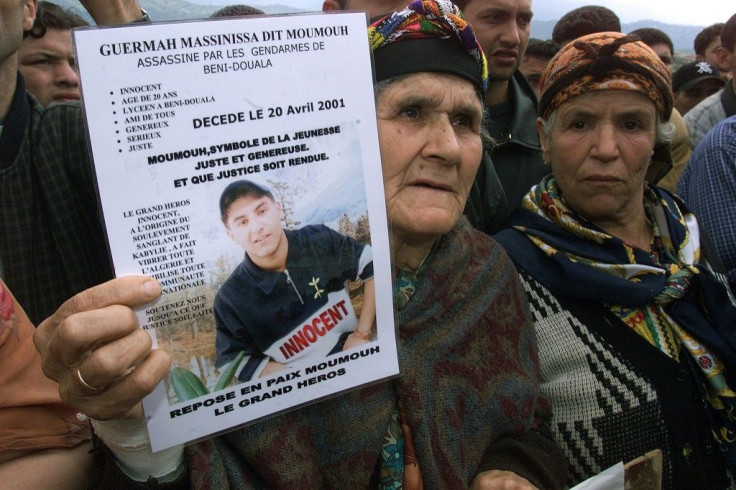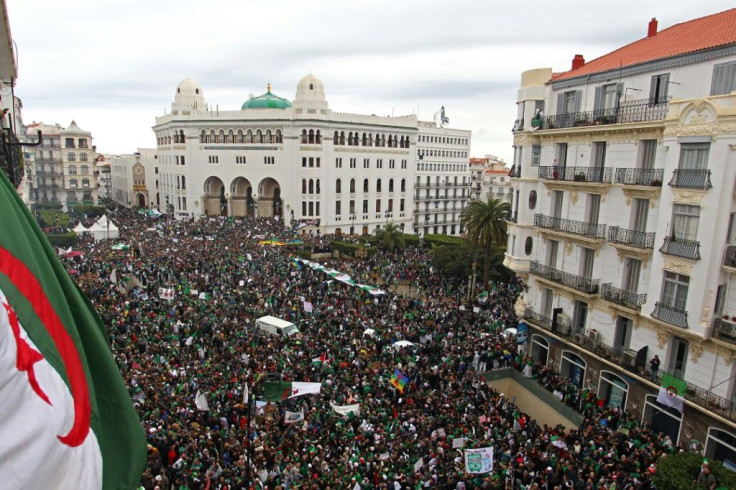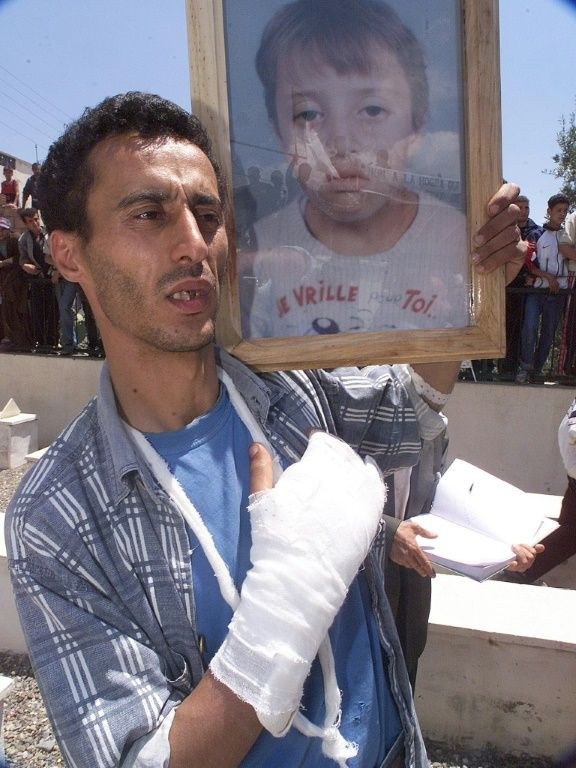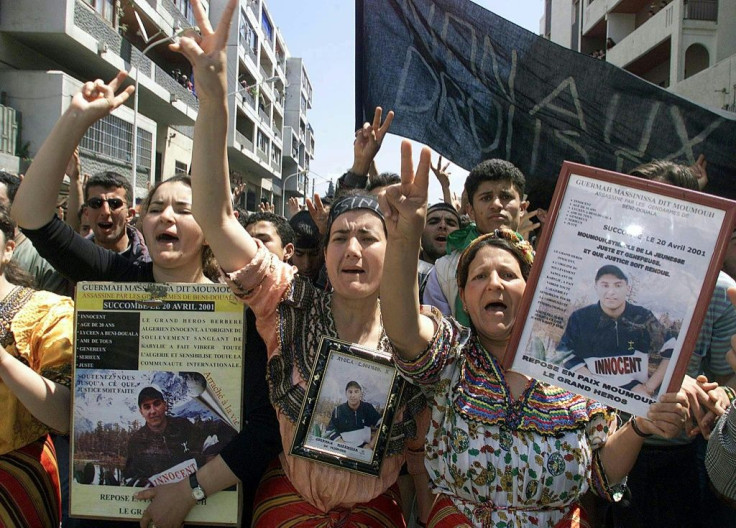Berbers Mark 20 Years Since Algeria's 'Black Spring' Protests
Twenty years ago, an Algerian teenager's death in police custody in the heartland of the North African country's Berber minority sparked an uprising that helped blaze the trail for future protests.
Massinissa Guermah, a high school student, was hit by a hail of bullets on April 18, 2001, at a gendarmerie post in Beni-Douala, near Tizi Ouzou, the capital of Kabylie.
He had been arrested following an altercation between youths and gendarmes, and died from his wounds two days later.

"Nobody could imagine that a gendarme at his post could kill a young man in cold blood," recalled Said Sadi, an emblematic figure in the Berber culture and identity movement.
The Berbers are descendants of pre-Arab North African populations, whose homelands stretch from the extreme west of Egypt to Morocco.
"The people's reaction was one of anger," Sadi told AFP.

Kabylie had been preparing to celebrate the 21st anniversary of the April 1980 uprising, known as the "Berber Spring", demanding recognition of the community's culture and language.
Instead, the boy's death sparked the "Black Spring" riots, as people took to the streets of villages and towns to demand the closure of all gendarmerie posts in the region.
An estimated 126 people, many of them youths shot in clashes with riot police, died in two months of unrest, and more than 5,000 people were hurt.
Almost two decades later, in an echo of boiling anger against the authorities, then-president Abdelaziz Bouteflika's bid for a fifth term in office sparked the birth of the Hirak pro-democracy protest movement in February 2019.

The unprecedented protest movement -- this time nationwide, peaceful and peaking with hundreds of thousands on the streets -- forced Bouteflika to resign weeks later after he lost the backing of the army.

But the Hirak has kept up demonstrations, demanding a sweeping overhaul of a ruling system in place since Algeria's independence from France in 1962.
The "Black Spring" saw "the birth of a new form of protest (in Algeria) that translated into occupying the streets," noted Sadi, former head of the Rally for Culture and Democracy (RCD), a secular opposition party formed out of the Berber movement in 1989.
Since then, street demonstrations have become citizens' principal means of expressing discontent.
Social tensions and problems including access to housing and drinking water have given rise to protests that have sometimes turned into riots.

In 2011, the year of the Arab Spring uprisings in several countries in the Middle East and North Africa, Algeria registered more than 10,000 protests, Sadi said.
The demonstrations have largely failed to bridge the divide with the state -- even after Bouteflika's fall, protesters view the political system as essentially unchanged and illegitimate.
Bouteflika was elected in 1999 on a promise of bringing peace to the country, as a 1992-2002 civil war pitted the army against multiple Islamist and jihadist groups, leaving an estimated 200,000 people dead.
When the "Black Spring" broke out in 2001, Sadi's RCD was a member of the governing coalition.
He recalled telling Bouteflika: "we cannot be part of a government that shoots at its children."
In Algeria, the Berbers mainly live in Kabylie, a restive mountainous region to the east of the capital Algiers.
In the spring of 2002, a movement of tribal leaders achieved the withdrawal of the majority of gendarmerie brigades from Kabylie.
Also that year, Bouteflika recognised the Berber tongue Tamazight as a national -- although not official -- language, though the president remained resistant to all ideas of plurality.
"He granted Tamazight national language status to clear himself of responsibility for state crimes committed in Kabylie," said Sadi, who has just published a second volume of memoirs.
Tamazight was eventually recognised as the country's second official language, alongside Arabic, as part of constitutional reforms in 2016, though its teaching in schools remains optional.
And Bouteflika in 2017 decreed that Yennayer, the Berber New Year, would be a holiday in Algeria "to strengthen national unity".
Having such "symbolic points of reference" is not to be dismissed, Sadi noted, in a country that is still building itself post-independence, and after decades of one-party rule under the National Liberation Front (FLN).
It is also "important", he added, that the FLN, "which stigmatised the question (of ethnic identity) for decades, has been forced to recognise it".
© Copyright AFP 2024. All rights reserved.




















